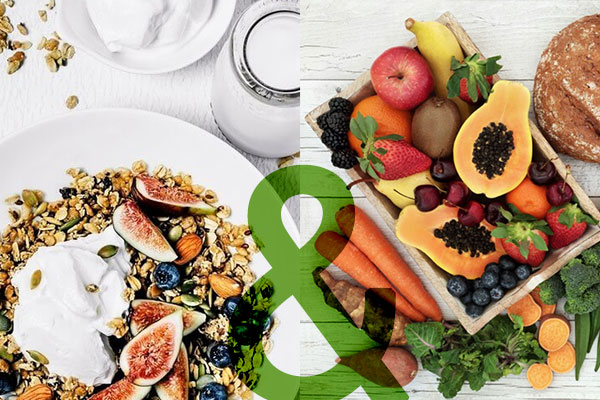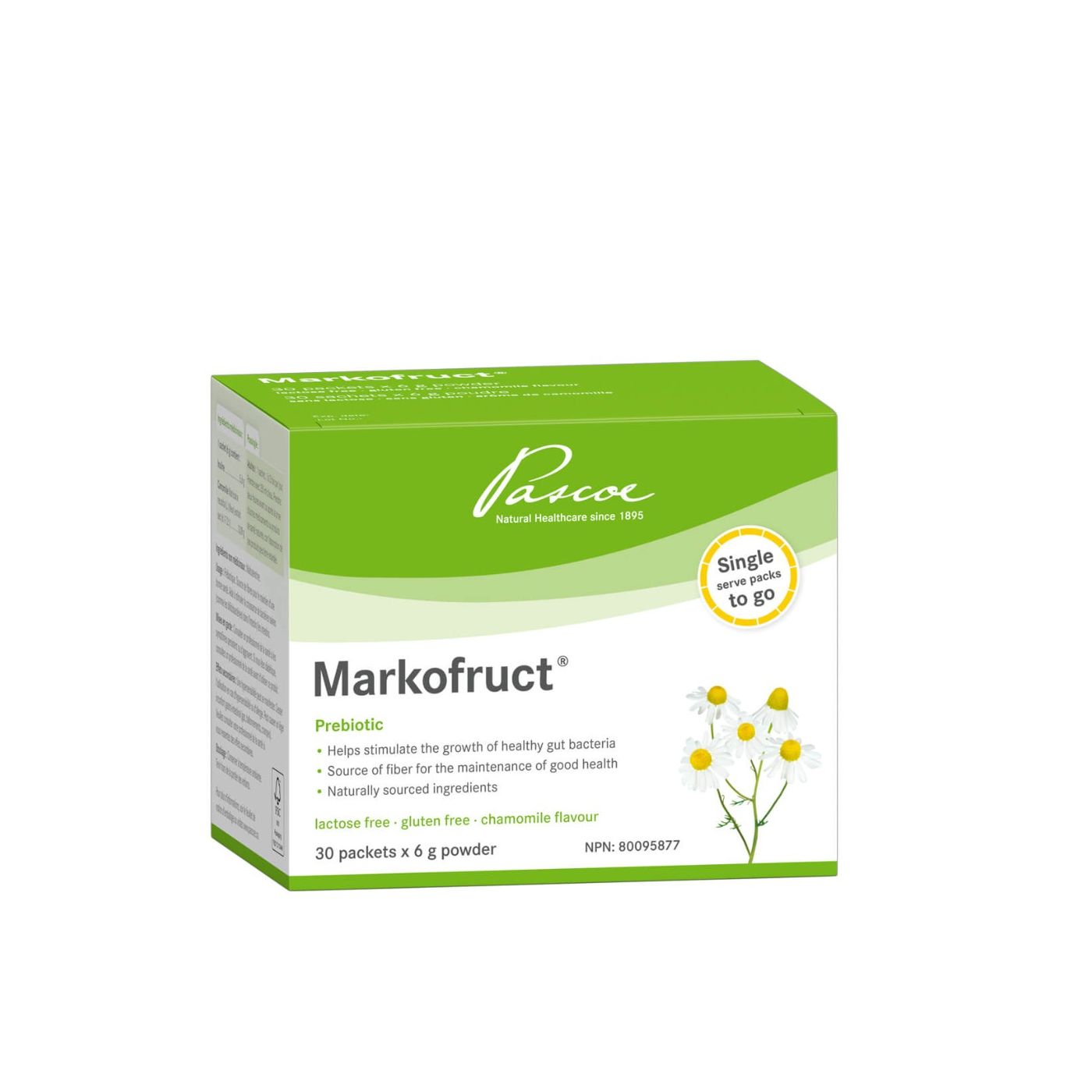Prebiotics and Probiotics: What's the Difference and Why Do We Need Them?
It seems like everyone is talking about prebiotics and probiotics. They have been the hot topic of many nutritionists and dietitians as of late. But what are they and what's the difference between them? And do we really need them?
A helpful metaphor to understand the difference between a prebiotic and a probiotic may be a garden. You can add seeds—the probiotic bacteria—while the prebiotic fiber is the water and fertilizer that helps the seeds to grow and flourish.
Your gut microbiome is a vast community of trillions of bacteria and fungi that inhabit every nook and cranny of your gastrointestinal (GI) tract. The human colon is a real health organ. There are over a thousand separate bacteria living in your colon, believe it or not.
The total number of bacteria can reach tens of billions, more than ten times the number of cells in the entire body! These microbes mostly live in your lower intestine (the colon) and outnumber all the other cells in your body put together.
These bacteria, when treated right, can do some amazing things for our health. They have a major influence on our metabolism, body weight, predisposition to illness, immune system, appetite and mood. They can provide numerous health benefits that range from strengthening our immune system to helping us with weight loss to sharpening our cognitive skills.


What Are Probiotics?
Most of us have heard about probiotics, they are advertised everywhere. They are the good bacteria in yogurt, sauerkraut, and many other fermented foods. They are also available in pill or capsule form. Probiotics are live beneficial bacteria that are naturally created by the process of fermentation.
Healthy, Probiotic Foods
There are many very healthy probiotic foods you can eat which include numerous varieties of fermented soybeans, dairy and vegetables. If you can't or won't eat any of these foods, you can also take a probiotic supplement.
- Yogurt
- Kefir
- Sauerkraut
- Tempeh
- Kimchi
- Miso
- Kombucha
- Pickles
- Traditional buttermilk
- Natto
Probiotics help improve your health in a variety of ways:
- Break down and digest food
- Reduce bloating and constipation
- Support overall gut health and improve digestion
- Ensure the immune system works well
- They play a role in how you think and feel. Gut bacteria can improve the production and regulation of hormones, such as insulin and leptin. Probiotics have also been found to produce neurotransmitters such as serotonin, dopamine, and GABA — which play a key role in your mood.
What Are Prebiotics?
Prebiotics are present only in plants, mostly vegetables. They are the non-digestible part of foods like bananas, onions, garlic, Jerusalem artichoke, the skin of apples, chicory root, beans, and many others. Prebiotic fibre goes through the small intestine undigested (unchanged) and is fermented when it reaches the large colon.
Prebiotics are also available as supplements, one is called Oligofructose. This small molecule is acted on very quickly in bacteria on the right side of the colon. Inulin, on the other hand, is a larger molecule and is fermented more slowly on the left side of the colon.
Healthy, Prebiotic Foods
Prebiotic foods are high in special types of fibre that support digestive health.
- Chicory root
- Dandelion greens
- Jerusalem artichoke
- Garlic
- Onions
- Leeks
- Asparagus
- Bananas
- Barley
- Oats
- Apples
- Seaweed
- Jicama root
- Flaxseeds
Prebiotics help improve your health in a variety of ways:
- They increase the body's ability to absorb minerals like calcium and magnesium
- They increase bone density and support stronger bones
- They strengthen the immune system
- They reduce blood triglyceride levels
- The help control weight and appetite due to healthy gut hormonal changes
- Improve bowel regularity
Probiotics and Prebiotics: A Winning Combination for Better Overall Health
There are several health benefits to taking prebiotics and probiotics:
Improved General Health
Studies and reviews considered the evidence supporting the potential benefits of probiotics. They found that probiotics may decrease:
- The need for antibiotics
- School absences from colds
- The incidence of ventilator-assisted pneumonia
- Gestational diabetes
- Vaginal infections, such as yeast infections
- Eczema
Improved Gastrointestinal (GI) Health
There have been many studies that have shown people with digestive and intestinal issues/disorders have seen improvements after taking prebiotics and probiotics. For example, people who suffer with Irritable Bowel Syndrome (IBS) found that taking probiotics seem to improve symptoms of this condition in several ways, like reduced bloating, improved digestion, reduced acid reflux and inflammation.
Improved Mental Health
The gut-brain connection is very real. Have you ever heard the term "gut-wrenching" experience? Anxiety has been linked to stomach problems, and vice versa. Have you ever been in a situation that made you feel nauseous? If you have, it's because the GI tract is sensitive to emotion. Anxiety, anger, sadness, happiness - all of these feelings can trigger symptoms in the gut.
There is a link between the gut and the brain: you are what you eat! Research suggests that taking probiotics and prebiotics can improve mental health. A 2017 review found that probiotics may help alleviate symptoms of depression. Also, having a healthier gut can help improve focus and concentration.
The brain has a direct effect on the stomach and intestines. The brain and the GI system are intimately connected, therefore feelings of depression and/or anxiety and stress can cause someone to experience gastrointestinal upset with no obvious physical cause. On the other hand, someone who has gastrointestinal problems can fall into a depression due to those physical problems.
Tips to Boost Your Gut Microbiome
Your gut bacteria are extremely important for many aspects of health. Many studies have now shown that disrupted microbiota can lead to numerous chronic diseases. The best way to maintain a healthy microbiota is to eat a range of fresh, whole foods, mainly from plant sources like fruits, veggies, legumes, beans and whole grains.
- Eat a diverse range of foods
- Eat lots of fruits, vegetables, legumes and beans
- Eat fermented foods
- Steer clear of artificial sweeteners
- Eat probiotic and prebiotic foods, or take a prebiotic supplement
- Breastfeed for at least six months
- Eat whole grains
- Eat a plant-based diet


